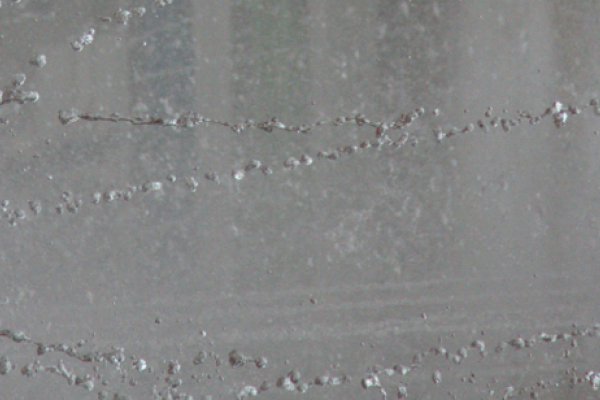interior | exterior
Laufzeit:
Eröffnung:

Klanginstallationen, in denen Innen und Außen auditiver, virtueller oder abstrakter Räume und Modelle thematisiert werden.
Luc Döbereiner: Interior/Exterior
David Pirro: Interstices*
Martin Rumori: inout
* in Zusammenarbeit mit Georgios Marentakis und Sebastian Blamberger
David Pirrò: Zwischenräume - Interstices
Ein unregelmässiges Gitter bestehend aus 48 Lautsprechern bildet eine dreidimensionale Landschaft. Die projezierten Klänge, die aus diesen Quellen stammen, zeichnen Regionen, Flächen und Linien in den Raum, teilen ihn auf und organisieren ihn neu. Im Zuhören und Erforschen der sich überlappenden Räume zwischen diesen akustischen Formen, kann der/die BesucherIn ihren/seinen eigenen Weg durch die Klanginstallation finden und die verschiedenen räumlichen Perspektiven erfahren, die von einer sich langsam verändernden Klangarchitektur geprägt ist.
Die Installation wird in Zusammenarbeit mit Georgios Marentakis (http://www.iaem.at/Members/marentakis) und Sebastian Blamberger realisiert.
An irregular lattice of 48 loudspeakers forms a three-dimensional landscape. The sounds projected by these sources draw regions, planes and lines into the room subdividing and reorganizing its space. Listening and exploring the intervening spaces between these acoustic shapes, the visitor can compose her / his own path through the sound installation and experience the different spatial perspectives delineated by a slowly changing sonic architecture.
This installation is conceived and realized in collaboration with Georgios Marentakis (http://www.iaem.at/Members/marentakis) and Sebastian Blamberger.
David Pirrò, born in 1978 in Udine (Italy), is a researcher, sound and video artist. He studied Physics and Computer Music. Since 2007 he is University Assistant at KUG’s Institute of Electronic Music and Acoustics (IEM) in Graz where he collaborates in various artistic and scientific research projects. In parallel he is carrying out his dissertation thesis with Gerhard Eckel on interaction design in computer music performance.
Luc Döbereiner: Interior/Exterior
Der Klanginstallation liegt ein physikalisches Klangsynthesemodell zu Grunde, das eine Reihe simulierter, miteinander verbundener Federn und Massen beinhaltet. Der Output regt eine Platte an, die mit Kontaktmikrofonen abgenommen wird. Dieses Signal wird zurück in das Synthesemodell geführt und regt die dort simulierten Massen an. Das Modell erstreckt sich somit in einen physikalischen Aufbau. Es gibt zwei untrennbare Teile, die für einander ein Inneres und ein äusseres bilden. So entsteht eine kreisförmigeS truktur, in der sich beide Teile gegenseitig bedingen und voraussetzen.
The sound installation is based on a physical sound synthesis model, which comprises a series of connected simulated springs and masses. The output excites a sheet metal plate. The resulting vibrations are being picked up and fed back into the synthesis model, where they are used to excite the simulated masses. The synthesis model thus extends into a physical set-up. There are two inseparable, yet different parts, which form a mutual interior and exterior, something like an "internal exclusion."
Luc Döbereiner (1984) studied Sonology at the Royal Conservatory in The Hague and computer music at the Institute of Electronic Music and Acoustics in Graz. He composes instrumental and electronic music and develops audio and composition software. Döbereiner is currently a doctoral candidate at the artistic doctoral school of the University of Music and Performing Arts in Graz. His research project is concerned with compositional models and explores the relationship of sound and sound description in musical composition. He lives in Berlin. www.doebereiner.org
Martin Rumori: inout
In dieser Installation werden zwei Klangsphären live miteinander verbunden: die aussenliegende der Jakoministrasse und die innenliegende der ESC. Mittels eines getrackten Kopfhörers kann durch einfaches Zu- oder Abwenden eine der Situationen oder eine Mischung aus beiden gehört werden. Durch die mediale Vermittlung erklärt inout unsere klangliche Umgebung zu auditiven Readymades und lenkt die Aufmerksamkeit auch auf den Vorgang des Hörens selbst.
This installation combines two auditory spaces: the outside reality of Jakoministraße and the inside one of ESC, the exhibition space itself. By means of a tracked headphone, the listener may dive into either sonic surrounding or a mixture of both, simply by orienting himself towards one or the other sound scenery. This way, our everyday life sonic environments are declared auditory readymades by technical mediation. At the same time, inout draws attention to the act of listening itself.
Martin Rumori was born 1976 in Berlin. He studied musicology and computer science in Berlin. His main areas of working are sound installations and reactive environments, software development in artistic contexts, workshops, lectures and publication in the field of musicology. From 2005 to 2010, he worked as an artistic-academic assistant at Klanglabor of Academy of Media Arts Cologne. Currently, he holds a position as project assistant at Institute of Electronic Music and Acoustics Graz. Martin Rumori lives in Cologne and Graz. www.rumori.de
interior | exterior wird unterstützt vom Institut für Elektronische Musik und Akustik Graz und vom Klanglabor der Kunsthochschule für Medien Köln.
interior | exterior is kindly supported by Institute of Electronic Music and Acoustics Graz and Klanglabor at Academy of Media Arts Cologne.
